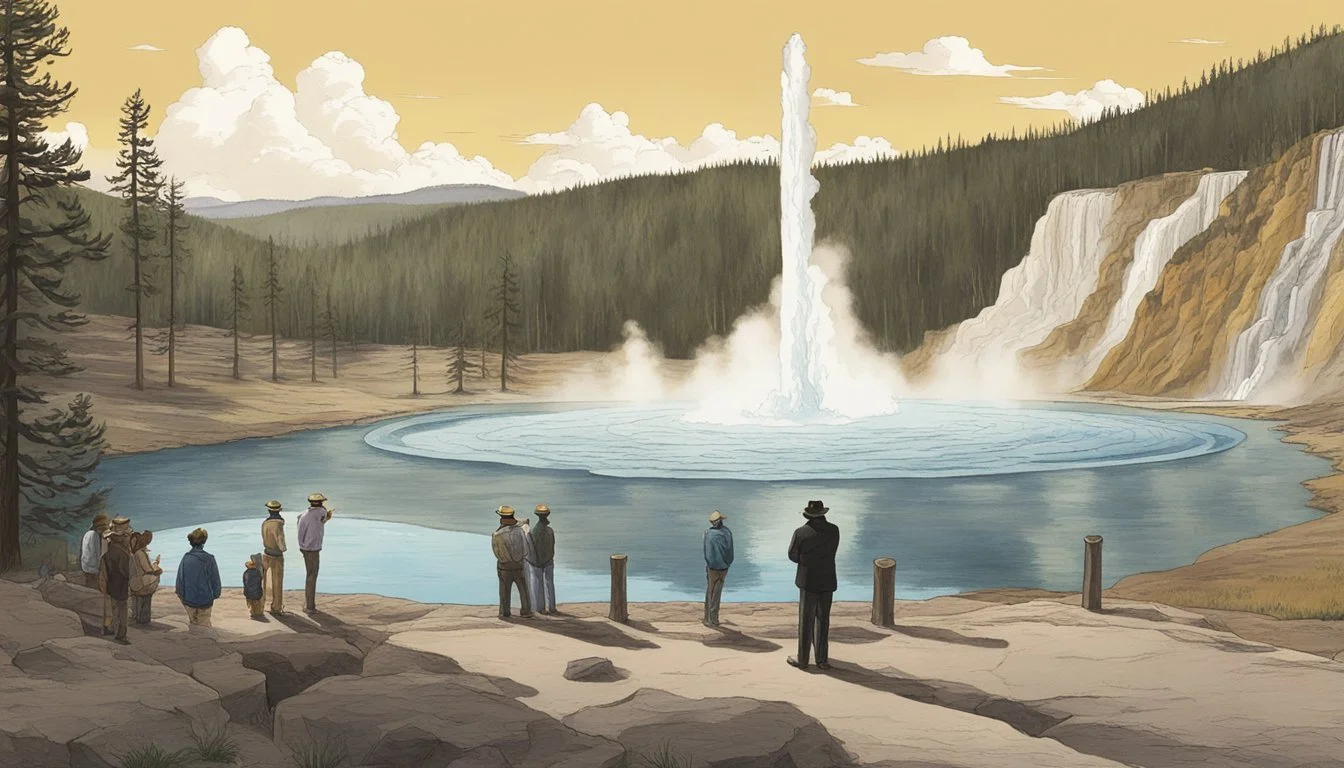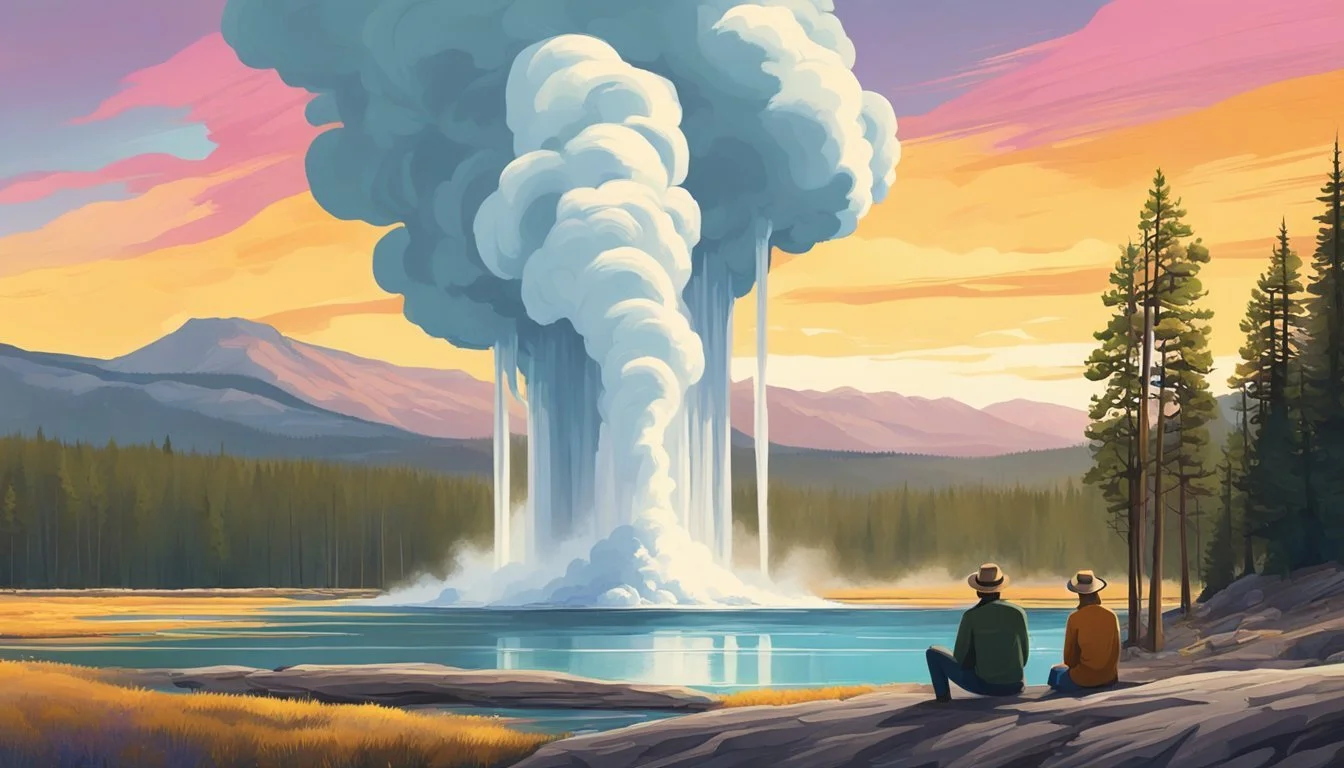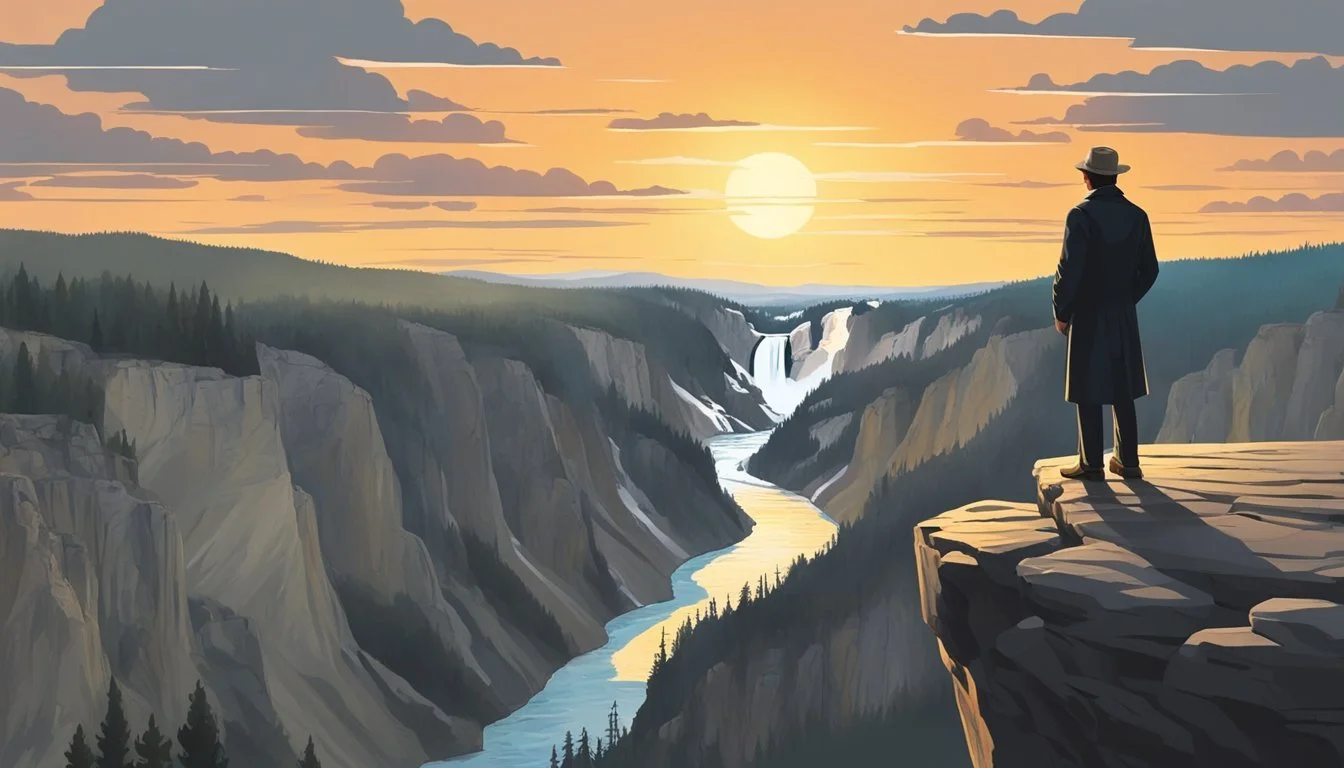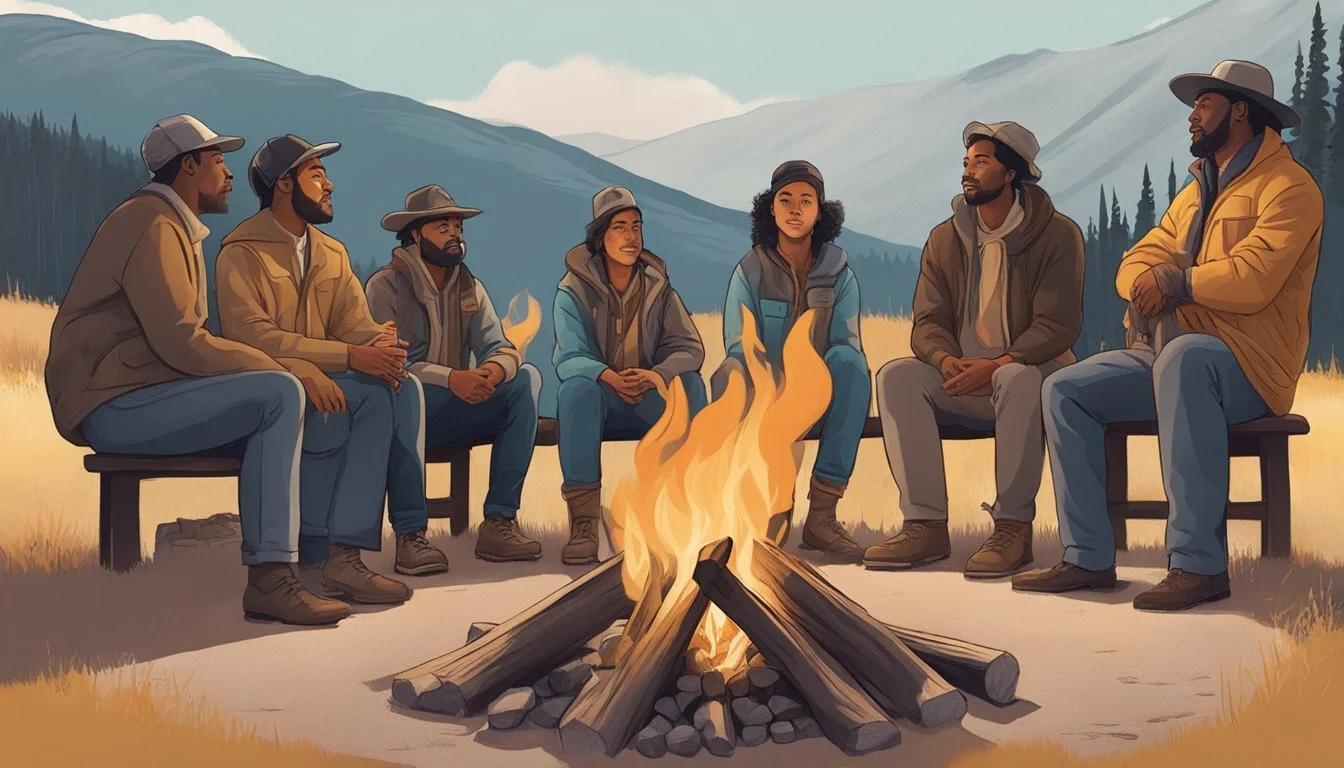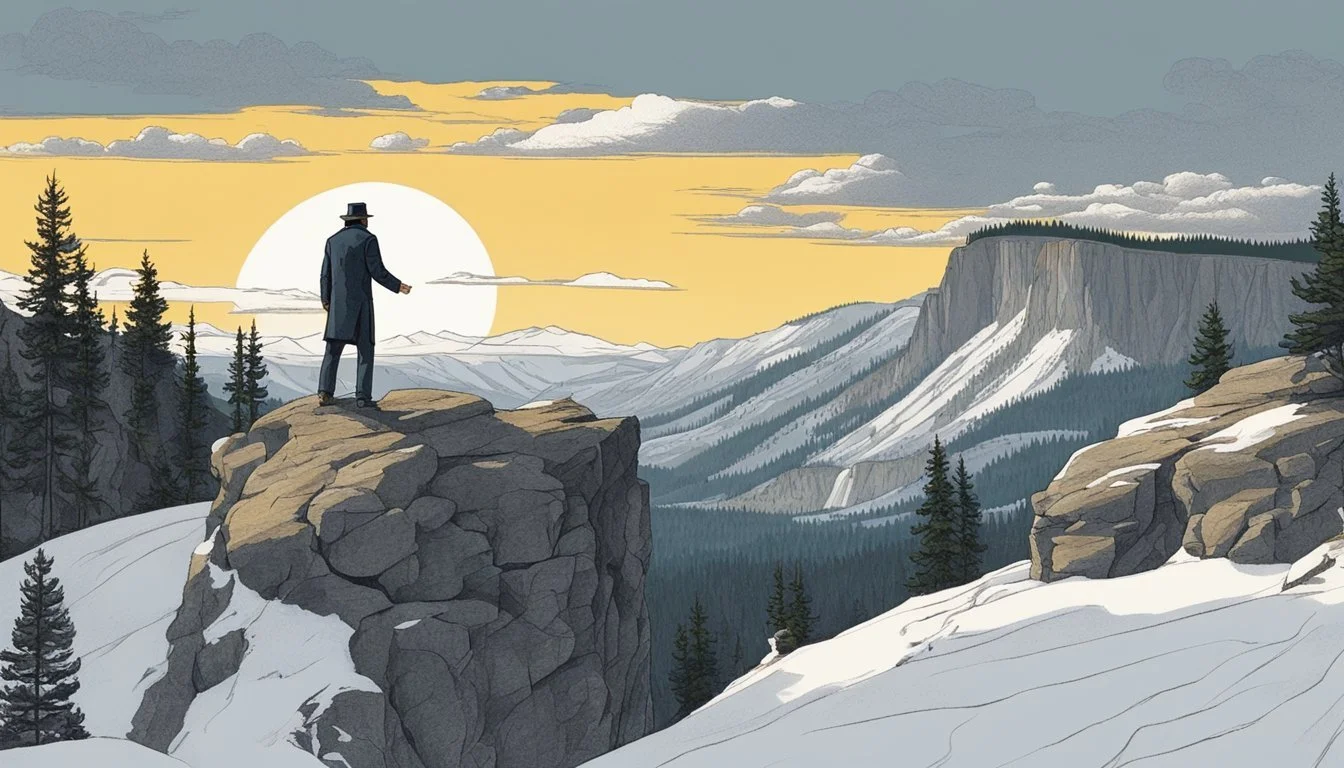Memorable Monologues and Speeches in Yellowstone
Powerful Moments That Define the Series
Yellowstone has captivated audiences with its gripping storylines and complex characters since debuting on the Paramount Network. The Western drama series follows the Dutton family's struggles to maintain control of their vast Montana ranch. At the heart of the show's appeal are its powerful monologues and speeches, which reveal deep insights into the characters and their world.
Kevin Costner's portrayal of family patriarch John Dutton anchors many of the show's most memorable orations. His no-nonsense declarations convey the weight of protecting the Dutton legacy and way of life. Other characters like Beth Dutton and Rip Wheeler also deliver impactful speeches that resonate with viewers long after the credits roll.
These monologues and speeches in Yellowstone do more than advance the plot. They explore timeless themes of family, duty, power, and the changing American West. The raw emotion and vivid language used elevate key moments, creating quotable lines that fans eagerly discuss and share.
The Dutton Family Legacy
The Dutton family's legacy is woven through powerful speeches and monologues that reveal their complex relationships, ambitions, and struggles to maintain control of their vast ranch empire. These moments provide insight into the characters' motivations and values.
Patriarch John Dutton and his Philosophies
John Dutton's speeches often reflect his unwavering commitment to preserving the family's land and way of life. His words carry weight, mixing wisdom with stern warnings. In one memorable monologue, John declares, "This land is my legacy. It's all I've got to leave behind, and I won't let it be taken."
His philosophies emphasize hard work, loyalty, and the importance of family. John's quotes frequently touch on the harsh realities of ranching and the sacrifices required to maintain their empire.
Through his words, viewers gain a deeper understanding of the pressures and responsibilities that come with leading the Dutton family.
Beth Dutton's Intensity and Vulnerability
Beth Dutton's monologues are marked by their fierce intensity and razor-sharp wit. Her speeches often reveal a complex mix of ruthlessness and deep-seated vulnerability. In one powerful scene, Beth proclaims, "I'm the rock therapists break themselves against."
Her words frequently showcase her unwavering loyalty to her father and the family legacy. Beth's quotes are often laced with biting sarcasm and colorful language, reflecting her no-holds-barred approach to protecting the Dutton empire.
Despite her tough exterior, Beth's speeches occasionally offer glimpses into her emotional depths, particularly when addressing her relationship with Rip or her family traumas.
Kayce Dutton's Journey of Loyalty and Love
Kayce Dutton's monologues reflect his internal struggles between family loyalty and personal desires. His speeches often reveal a man torn between his duties to the ranch and his love for his wife and son.
In one poignant moment, Kayce states, "I choose the ranch. I choose you." This line encapsulates his ongoing battle to balance his responsibilities.
Kayce's words frequently touch on themes of honor, duty, and the weight of the Dutton name. His speeches provide insight into the complexities of being a Dutton and the sacrifices required to uphold the family legacy.
Jamie Dutton's Conflict and Ambition
Jamie Dutton's monologues often highlight his internal conflicts and ambitious nature. His speeches reveal a man caught between his desire for power and his complicated relationship with his family.
In a revealing moment, Jamie declares, "I've spent my entire life fighting for this family." This statement underscores the tension between his loyalty and his personal aspirations.
Jamie's words frequently touch on themes of identity, belonging, and the cost of ambition. His monologues provide insight into the complex dynamics within the Dutton family and the struggles of living up to the family name while carving out his own path.
Riveting Speeches of Yellowstone
Yellowstone's characters deliver powerful monologues that capture their essence and the show's themes. These speeches reveal deep truths about family, loyalty, and the struggle to preserve a way of life.
John Dutton's Conviction and Governance
John Dutton's speeches reflect his unwavering commitment to his land and legacy. His words carry the weight of generations, emphasizing the importance of preserving the Yellowstone ranch at all costs.
"I fight for what's right. I don't really care who supports it," John declares, showcasing his determination to protect his interests regardless of political affiliations.
John's speeches often highlight the tension between tradition and progress. He articulates the challenges of maintaining a ranch in modern times while fiercely defending his family's heritage.
His monologues frequently touch on themes of sacrifice and duty, reminding listeners of the price paid to keep the Yellowstone intact.
Beth Dutton: A Study in Power and Precision
Beth Dutton's monologues are sharp, incisive, and often laced with biting wit. Her speeches reveal a complex character driven by loyalty to her family and a ruthless approach to business.
In a memorable scene, Beth delivers a scathing monologue to her former professor, demonstrating her intellect and fierce determination. Her words cut deep, leaving a lasting impression on both characters and viewers.
Beth's speeches often explore themes of power dynamics and gender roles in the ranching world. She uses her words as weapons, strategically dismantling opponents with precision and flair.
Her monologues frequently reveal the vulnerabilities beneath her tough exterior, offering glimpses into her motivations and inner turmoil.
Rip Wheeler's Wisdom and Devotion
Rip Wheeler's speeches embody the cowboy code of honor and loyalty. His words carry the weight of experience and a deep understanding of the ranch's ways.
Rip's monologues often focus on the importance of hard work, respect, and dedication to the Dutton family. He speaks with a quiet authority that commands attention and respect.
His speeches frequently touch on themes of redemption and second chances, reflecting his own journey from troubled youth to trusted ranch foreman.
Rip's words of wisdom to younger ranch hands reveal his role as a mentor and guardian of Yellowstone's traditions.
Yellowstone: The Cowboys' Code
The cowboys of Yellowstone deliver speeches that capture the essence of ranch life and the cowboy ethos. Their words paint a vivid picture of a vanishing way of life.
These monologues often emphasize the importance of loyalty, hard work, and respect for the land. They reflect the deep bond between the cowboys and the ranch they call home.
Speeches from characters like Lloyd and Jimmy highlight the challenges and rewards of life on the Yellowstone, offering insights into the cowboy lifestyle.
These monologues frequently touch on themes of brotherhood and sacrifice, underscoring the tight-knit community formed by the ranch hands.
Romantic Interludes and Decision Making
Yellowstone's romantic storylines intertwine love and crucial choices. Characters navigate complex relationships while facing life-altering decisions that shape their futures and the fate of the Dutton ranch.
Kayce and Monica: Love Against Odds
Kayce and Monica's relationship faces constant challenges. Their love endures despite cultural differences and family pressures. Kayce's decision to leave the ranch and live on the reservation demonstrates his commitment to Monica and their son.
The couple's bond is tested by external forces, including conflicts between the Dutton family and the nearby Native American tribe. Their choices often pit loyalty to family against personal happiness.
Monica's near-death experience in childbirth forces both to confront their priorities. This pivotal moment strengthens their resolve to stay together despite the obstacles they face.
Rip and Beth: Turmoil and Tenderness
Beth Dutton and Rip Wheeler's relationship is marked by intense passion and unwavering loyalty. Their love story unfolds through years of shared history and mutual understanding.
Beth's decision to finally marry Rip represents a turning point. It signifies her willingness to embrace vulnerability and commitment despite her tumultuous past.
Rip's steadfast support of Beth, even in her darkest moments, showcases the depth of his devotion. His choice to stand by her side, regardless of the consequences, defines their bond.
Their relationship evolves as they face threats to the Dutton empire. Together, they make tough decisions to protect their family and way of life.
Jimmy and Christina's New Beginnings
Jimmy's journey leads him to a new love interest in Christina. Their relationship represents a fresh start for Jimmy, away from the complexities of Yellowstone ranch.
Christina's influence prompts Jimmy to reconsider his life choices. He decides to pursue his passion for rodeo, even if it means leaving familiar territory.
Their budding romance faces hurdles as Jimmy balances his commitments to the Duttons with his personal aspirations. This conflict forces him to make difficult decisions about his future.
Jimmy and Christina's story highlights the theme of personal growth through love. Their relationship encourages Jimmy to step out of his comfort zone and chase his dreams.
Iconic Moments of Humor and Heartbreak
Yellowstone's characters captivate audiences with their sharp wit and emotional depth. The show masterfully blends humor and poignant moments, creating unforgettable scenes that resonate with viewers.
Wry Humor and Eloquent Soliloquies
John Dutton's dry humor shines through in tense situations. His quips often diffuse conflicts while asserting dominance. In one memorable scene, he tells a rival, "You're the trailer park. I'm the tornado."
Rip Wheeler's gruff exterior belies his poetic soul. His rare soliloquies reveal a complex character grappling with loyalty and love. When proposing to Beth, he admits, "I've loved you since the day I met you. I'll love you till my last breath."
Beth Dutton's razor-sharp tongue provides both laughs and winces. Her brutal honesty cuts through social niceties, as when she tells a businessman, "You are the trailer park. I am the tornado."
Evelyn Dutton's Lasting Influence
Though deceased, Evelyn Dutton's presence looms large over the Yellowstone ranch. Flashbacks reveal a strong matriarch who shaped her children's characters.
In a touching scene, young Beth learns harsh lessons about womanhood from Evelyn. The mother's words, "You have to be twice as smart and three times as tough as any man," echo throughout Beth's adult life.
John's rare moments of vulnerability often involve memories of Evelyn. His quiet reflections on their shared dreams for the ranch highlight the depth of his loss and his determination to preserve their legacy.
Ranchers' Comradery
The bunkhouse scenes showcase the camaraderie among Yellowstone's cowboys. Their banter provides comic relief amidst the show's intense drama.
Lloyd's weathered wisdom and Jimmy's earnest attempts to fit in create a heartwarming dynamic. Their exchanges often lead to both laughter and life lessons.
The annual branding event brings together the entire ranch family. These scenes blend humor, tradition, and the bittersweet acknowledgment of changing times. Cowboys swap stories, share drinks, and reaffirm their loyalty to the Dutton brand.
The Impact of Antagonists on the Duttons
The Dutton family faces constant threats from powerful adversaries seeking to claim their land and resources. These antagonists challenge the Duttons' grip on power and force them to defend their legacy through increasingly drastic measures.
Rivals: Rainwater and Jenkins
Thomas Rainwater and Dan Jenkins emerge as formidable opponents to the Duttons' control of Paradise Valley. Rainwater, the shrewd leader of the Broken Rock Reservation, aims to reclaim ancestral lands through legal and business maneuvering. His strategic approach puts constant pressure on John Dutton's empire.
Dan Jenkins, a wealthy real estate developer, attempts to transform the valley with luxury resorts and golf courses. His vision directly conflicts with the Duttons' ranching lifestyle. The clash between Jenkins and the Duttons escalates into violence and sabotage.
These rivals force the Duttons to adapt their tactics and forge uneasy alliances to protect their interests. The ongoing conflict shapes the family's decisions and drives much of the show's tension.
Willa Hayes and Market Equities' Intrusion
Market Equities, led by the ruthless Willa Hayes, presents a new level of threat to Dutton land. This powerful corporation aims to acquire vast tracts for commercial development, including an airport and ski resort.
Willa's aggressive tactics and seemingly unlimited resources push the Duttons to their limits. Her confrontations with Beth Dutton are particularly fierce, showcasing a battle of wits and determination.
The presence of Market Equities raises the stakes for the Duttons, forcing them to consider extreme measures to maintain their way of life. This conflict highlights the broader struggle between tradition and progress in the American West.
Jamie's Inner Turmoil and External Threats
Jamie Dutton's complex relationship with his family creates internal strife and external vulnerabilities. His quest for political power and recognition often puts him at odds with John's wishes.
Jamie's biological father, Garrett Randall, emerges as a dark influence, encouraging Jamie to turn against the Duttons. This psychological manipulation adds layers of complexity to Jamie's character and his role within the family.
As both insider and potential threat, Jamie's actions have far-reaching consequences for the Duttons' security and unity. His inner conflict and external pressures create unpredictable scenarios that keep the family constantly on edge.
Cultural Representation and Conflict
Yellowstone portrays complex dynamics between Montana's indigenous peoples and modern ranchers. The series explores themes of loyalty and conflict through its depiction of the fictional Broken Rock Reservation and Montana's rugged landscapes.
Broken Rock Reservation
The Broken Rock Reservation plays a central role in Yellowstone's cultural representation. Chief Thomas Rainwater leads the tribe's efforts to reclaim ancestral lands from the Dutton ranch. His character embodies the struggle between preserving indigenous heritage and navigating modern political realities.
Rainwater's eloquent speeches highlight historical injustices and the ongoing fight for tribal sovereignty. The reservation scenes offer glimpses into traditional practices and community bonds. This representation brings depth to Native American characters often overlooked in mainstream media.
Montana's Majesty
Montana's sweeping vistas serve as more than a backdrop in Yellowstone. The land itself becomes a character, shaping the conflicts and loyalties of those who inhabit it. Ranchers like John Dutton view the state's natural beauty as their birthright and livelihood.
This attachment to the land fuels tensions with outsiders and developers. Speeches about Montana's rugged spirit and independent character pepper the dialogue. The series captures the state's unique blend of natural wonder and frontier mentality.
Montana's harsh climate and isolated communities foster a culture of self-reliance and distrust of outside influence. This mindset clashes with modern pressures, driving much of the show's dramatic conflict.
The Cinematic Craft of Yellowstone
Yellowstone's visual style and narrative approach set it apart as a groundbreaking Western drama. The show's creators employ masterful techniques to bring the rugged landscapes and complex characters to life on screen.
Taylor Sheridan's Vision and Writing
Taylor Sheridan, the creator of Yellowstone, brings a unique perspective to the series. His writing balances gritty realism with poetic dialogue, creating a world that feels authentic yet larger-than-life. Sheridan's scripts often feature powerful monologues that reveal character depth and motivation.
The show tackles themes of family, power, and the changing American West. Sheridan's background in acting informs his character-driven approach, resulting in multifaceted roles that resonate with viewers.
Visual Storytelling and Cinematography
Yellowstone's cinematography captures the breathtaking beauty of Montana's landscapes. Wide shots showcase vast prairies and towering mountains, emphasizing the characters' connection to the land.
The series employs a rich color palette, contrasting warm earth tones with cool blues and greens. This visual style enhances the mood and atmosphere of each scene.
Dynamic camera movements and thoughtful framing heighten dramatic moments. Close-ups reveal subtle emotions, while sweeping aerial shots convey the epic scale of the Dutton ranch.
The Cultural Phenomenon
Yellowstone has captured the hearts of millions, becoming a defining television series of the 2020s. Its unique blend of Western drama, family conflicts, and political intrigue has resonated with audiences across the United States.
Fan Base and Quotable Characters
Yellowstone's fan base has grown exponentially since its debut. Viewers are drawn to the show's complex characters and their memorable quotes. Beth Dutton, portrayed by Kelly Reilly, has become an iconic figure known for her sharp wit and cutting remarks. John Dutton, played by Kevin Costner, delivers powerful monologues that often encapsulate the show's themes of legacy and survival.
The series' popularity has led to viewing parties and merchandise sales. Fans eagerly discuss plot twists and character developments on social media platforms. This engagement has contributed to the show's cultural impact, making it a topic of conversation far beyond its weekly airtime.
Comparison to Other Television Shows
Yellowstone's success can be compared to other cultural phenomena like The Walking Dead. Both series have cultivated dedicated fan bases and sparked spin-offs. However, Yellowstone stands out for its modern Western setting and exploration of contemporary issues.
Unlike many prestige dramas, Yellowstone has achieved mainstream success without relying on streaming platforms for its primary distribution. This traditional cable TV approach has helped it reach a broad audience, including demographics often overlooked by streaming-focused shows.
The series has also influenced fashion trends, with viewers emulating the characters' Western-inspired styles. This real-world impact further cements Yellowstone's place as a cultural touchstone of the early 2020s.



